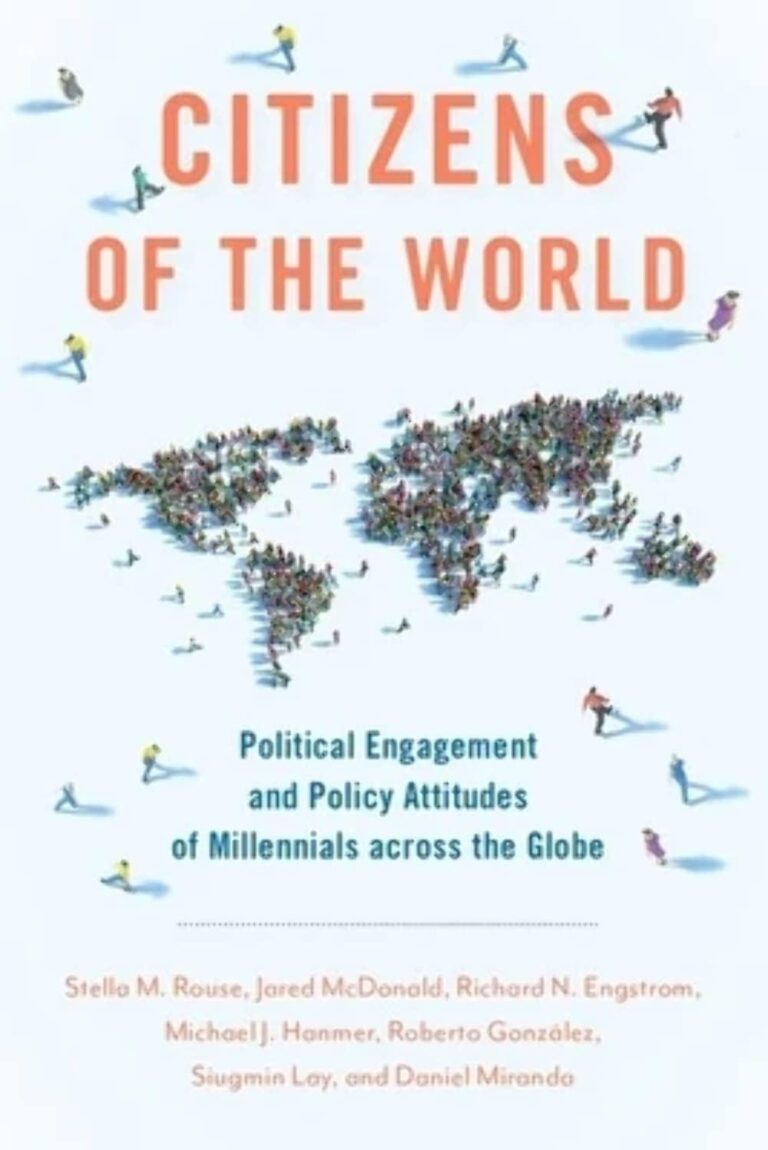Empowering Latino Millennials: Enhancing Political Participation in 2024 and Beyond
Latino Millennials: Shaping New Political Priorities
The Latino millennial generation is rapidly becoming a pivotal force in American politics, yet their voter turnout and political involvement lag behind their growing population size. This group’s political interests are deeply influenced by their personal and community experiences, focusing on transformative issues such as immigration reform, social equity, healthcare affordability, and education access. Unlike traditional voter segments, Latino millennials prioritize policies that confront systemic barriers and promote equitable representation in government.
Recent studies indicate that approximately 80% of Latino millennials support comprehensive immigration reform that includes clear pathways to citizenship, while nearly 70% advocate for reforms in the criminal justice system to address racial disparities. Additionally, concerns about student loan debt and healthcare access remain high, with over 70% emphasizing the need for affordable education and culturally sensitive medical services.
- Immigration reform: Advocating for legal pathways and family reunification.
- Criminal justice changes: Reducing systemic biases and promoting community-based policing.
- Education affordability: Seeking debt relief and increased funding for public institutions.
- Healthcare access: Expanding coverage with attention to cultural competence.
To effectively engage Latino millennials, political initiatives must move beyond generic outreach and foster authentic conversations that reflect these nuanced priorities.
| Issue | Concern Level (%) | Preferred Policy Solutions |
|---|---|---|
| Immigration Reform | 80% | Pathways to Citizenship & Family Unity |
| Criminal Justice Reform | 68% | Policy Overhaul & Community Policing |
| Education Affordability | 72% | Student Debt Relief & Increased Funding |
| Healthcare Access | 74% | Expanded Coverage & Culturally Competent Care |
Overcoming Obstacles to Latino Millennial Voter Engagement
Despite their growing demographic weight, Latino millennials encounter several barriers that hinder their full participation in elections. Language differences, insufficient voter education, and complicated registration procedures often discourage involvement. To bridge this divide, community organizations stress the importance of providing multilingual resources and culturally tailored outreach programs that resonate with Latino millennials’ unique experiences.
Moreover, combating misinformation and streamlining voter registration through user-friendly digital platforms can significantly increase participation rates. Collaborative efforts between local governments, advocacy groups, and trusted community leaders are essential to build trust and empower young Latino voters to confidently exercise their electoral rights.
Innovative approaches such as mobile voter registration units and partnerships with Latino social media influencers have shown promising results in engaging this demographic. The table below outlines common challenges alongside practical solutions designed to foster a more inclusive democratic process:
| Barrier | Effective Solution |
|---|---|
| Language Barriers | Bilingual voter guides and dedicated helplines |
| Information Gaps | Targeted education campaigns led by trusted community figures |
| Complex Registration | Simplified online registration with stepwise instructions |
| Political Distrust | Grassroots engagement and transparent communication |
Maximizing Impact Through Social Media and Community Connections
Social media platforms like TikTok, Instagram, and Facebook have become vital tools for engaging Latino millennials in political discourse. These channels offer more than just information dissemination‚ÄĒthey create spaces for genuine interaction and storytelling that reflect the community‚Äôs realities. Campaigns that incorporate relatable narratives and leverage influencers who embody millennial values can significantly boost political involvement.
In addition to digital outreach, community-based networks such as cultural centers, advocacy groups, and neighborhood assemblies play a crucial role in building trust and fostering participation. Combining face-to-face engagement with consistent online presence creates a comprehensive strategy that resonates with Latino millennials.
| Engagement Strategy | Core Element | Result |
|---|---|---|
| Interactive Digital Campaigns | Live polls, Q&A sessions, social challenges | Enhances immediate participation |
| Local Grassroots Events | Community forums, town halls | Strengthens community bonds |
| Peer Ambassador Programs | Youth-led outreach | Expands reach organically |
| Bilingual Content Creation | Spanish-English posts and videos | Ensures cultural resonance |
Fostering Trust with Inclusive and Culturally Attuned Campaigns
To truly engage Latino millennials, political campaigns must embrace the community’s cultural richness and diversity. This involves producing multilingual materials and incorporating cultural symbols and stories that resonate personally. Partnering with respected community leaders and organizations with established credibility is crucial to ensure messages are not only delivered but deeply felt.
Authentic communication that encourages dialogue rather than one-way messaging helps build a sense of belonging and shared purpose. Utilizing platforms favored by Latino millennials‚ÄĒsuch as TikTok, Instagram, and community radio‚ÄĒenables dynamic, two-way interactions tailored to their preferences.
| Tactic | Effectiveness |
|---|---|
| Bilingual Messaging | Improves accessibility and cultural connection |
| Community Influencer Engagement | Builds trust through familiar voices |
| Interactive Forums | Encourages open dialogue and feedback |
| Highlighting Relevant Issues | Aligns campaigns with lived experiences |
Conclusion: Mobilizing Latino Millennials for a Stronger Democracy
As the 2024 election cycle approaches, the imperative to engage Latino millennials in the political process has never been greater. Overcoming obstacles related to voter access, education, and representation demands a unified effort from policymakers, community advocates, and grassroots organizations. By fostering inclusive conversations and empowering young Latino voices, cities like San Antonio can nurture a more vibrant, representative democracy that reflects the diverse perspectives of its population.
Recognizing the distinct challenges and opportunities faced by Latino millennials‚ÄĒand committing to ongoing, culturally relevant engagement‚ÄĒwill be key to amplifying their influence in shaping policies at both local and national levels.




